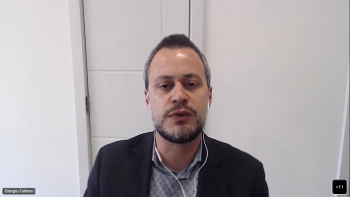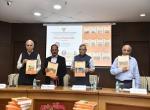The West Asia Experts Group Meeting was held on 8 July 2022 by the Vivekananda International Foundation, the discussion was focused on "The Geopolitical Impact of the War in Ukraine on the Middle East". The key speaker for the session was Giorgio Francesco Cafiero, CEO, Gulf State Analytics. The members attending and contributing were Amb. Anil Trigunayat (Coordinator); Amb. D P Srivastava; Dr. Meena Singh Roy; Prof. SujitDutta; Prof. Kingshuk Chatterjee; Vice Admiral Satish Soni; Lt. Gen. Ravi Sawhney and Director, VIF, Dr. Arvind Gupta.
Russia’s war on Ukraine has created major geopolitical dilemmas with wide ranging ramifications for the West Asian and North African region. It is crucial to evaluate how the key powers in the region could perceive the conflict in a multipolar world. In Arab states, the perception of withdrawal by the US is prevalent. These states are attempting to reset their strategic choices to prepare for a post-US dominated world order. Russia in the post Arab Spring period has been accepted as a normal extra-regional actor and it has managed to increase its influence. Russia’s role in Syria to protect Bashar Al Assad government has helped it to project itself as a dependable ally and a serious actor. Russia after stabilizing the Syrian regime is seeking to cajole the Arab states to re-legitimize President Assad. Russia’s support for authoritarian structure in the case of Syria has been appreciated by the autocratic Gulf States. The Gulf States are seeking to diversify their engagement. Russia could potentially emerge as a pillar of regional security architecture. Russia is therefore significant in terms of regime survival and security, energy partner and source of tourism and investments.
In the aftermath of Russia’s war against Ukraine since February 2022, most states in the region opposed the conflict. However, these states were unwilling to directly criticize Russia or support western sanctions. The West Asian and North African states are aware that at some point, the crisis will end, therefore in the long term; they do not want to disrupt their relations with Russia. Among the Arab states, Syria supported Russia’s actions and Algeria has abstained from voting in international forums. Kuwait and Qatar has staunchly opposed Russia’s unilateral actions which are based on their own historical experiences such as 1991 Iraqi invasion and 2017 economic blockade respectively. The US would continue to remain as the primary security guarantor for the GCC states. These states do not want to jeopardize their relationship with Washington DC. At the same time, it is unwilling to tow the US’ line to take action against Moscow. Notably, the UAE has enabled the Russian government and businessmen to bypass US sanctions and seizure of properties.






Post new comment